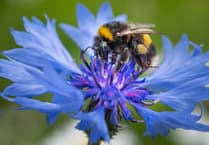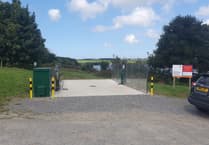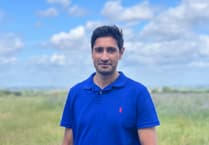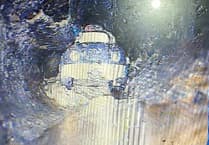A TAMAR Valley farm is entering a period of evolution by moving into the world of bio-dynamic farming practices.
Haye Farm, a certified organic farm at St Dominick, is wanting to evolve its farming practices to further promote animal welfare, the environment and nature, whilst minimising costs.
The mixed farm that supplies meat and vegetables for Riverford is trying to boost soil fertility naturally through working with locally-growing herbs, adopting new bio-dynamic farming practices such as fermenting manure and using silica and also through their single suckler herd that is integral to their organic practices.
The suckler herd, which is 100% pasture-fed, provides the vital purpose of building fertility back into the soil for growing.
After vegetables have been harvested on Haye Farm, a herbal ley is planted; a mixture of grasses, legumes and herbs which offer benefits to animal health and boost soil fertility.
The cattle graze on the herbal lay and produce valuable muck which then builds up fertility in the soil for growing vegetables and hopefully in the future, nuts.
Alongside the fertility benefits, the cowpats also attract wildlife such as insects and birds, increasing the biodiversity of the farm.
‘Learning to understand how we can work with natural cycles and fertility is really important’, said Kate Maciver-Redwood, joint tenant of the farm.
‘By having our suckler herd we can encourage all sorts of dung beetles and provide food for bird life so this helps to increase biodiversity.
‘I like to think since we’ve been here we’ve increased biodiversity.
To continue to work in harmony with nature the farm is also trying to work with the naturally-growing herbs (some call them ‘weeds’) such as chamomile, dandelion, nettle and yarrow. These plants may be ignored or thought of as a nuisance but could help with growing for example, helping to prevent blight. By working with these natural herbs, Kate hopes again that it will help keep costs down by promoting natural solutions.
Kate expressed an integral part of working with what nature provides and adopting these bio-dynamic practices is not only important for promoting nature and the environment but also for the production of high quality food.
Kate said: ‘Not only are we interested in having good yields, but it’s really important that what we are growing is nutrient dense and healthy for us’.
‘In these times of climate change and crisis, we need to look at other solutions, so this is a way of trying to find the best practice, sequester more carbon and grow healthy food in healthy ways.’
Kate and her husband Andy are on the beginning of their journey into bio-dynamic farming, entering a period of learning to see what works and how they can work in harmony with nature and promote wellbeing on Haye Farm.





Comments
This article has no comments yet. Be the first to leave a comment.